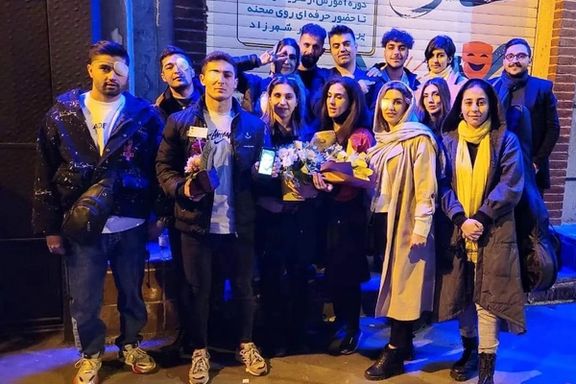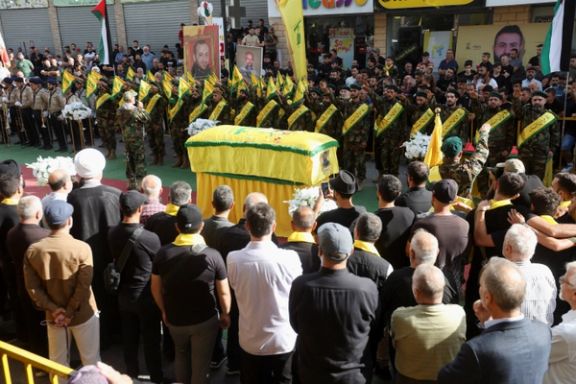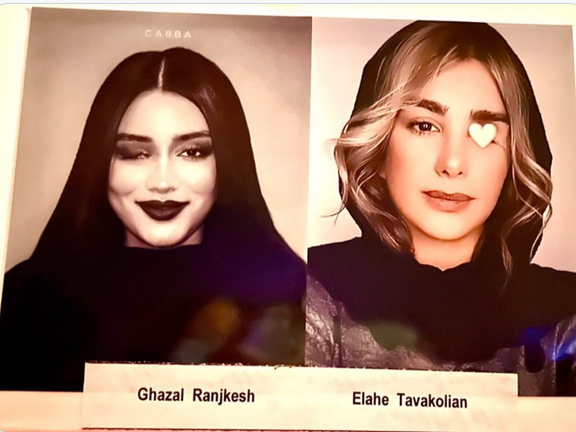Many Iranians see vindication in attacks on Hezbollah

Recent explosions of Hezbollah communication devices in Lebanon and Syria have triggered a complex web of reactions among Iranians, whose government is the primary backer of the armed group.

Recent explosions of Hezbollah communication devices in Lebanon and Syria have triggered a complex web of reactions among Iranians, whose government is the primary backer of the armed group.
On September 18 and 19, a suspected Israeli cyber operation caused the explosion of thousands of pagers and hand-held radios used by Hezbollah fighters, resulting in scores of deaths and injuries to more than 3,000 people. Hezbollah immediately blamed Israel and vowed "unique and bloody vengeance" in response. While this event stirred international attention, many Iranians showed a striking lack of compassion toward Hezbollah members. This reaction is deeply rooted in Iran’s internal strife, its government’s ties with Hezbollah, and the brutal repression of dissent in Iran.
Hezbollah, a Tehran-backed militant group based in Lebanon, has long been an extension of the Islamic Republic of Iran's influence in the region. Since its inception in the early 1980s, Hezbollah has received financial, military, and logistical support from the Iranian regime, becoming a key player in Tehran's regional strategy. Many Iranians view Hezbollah as a tool used by the Islamic Republic to pursue its geopolitical interests at the expense of both Iranian citizens and other populations in the Middle East.

Hezbollah's actions have gone beyond mere regional politics. The group has been involved in suppressing dissent in Lebanon, Syria, and even Iran. During the Syrian civil war, Hezbollah fighters actively supported the Assad regime, known for mass atrocities and human rights violations. Furthermore, many Iranians believe that Hezbollah operatives aided in suppressing protests in Iran, particularly during the 2022 "Woman, Life, Freedom" movement. The crackdown on these protests involved violent tactics, including shooting protesters with shotgun birdshots, resulting in numerous injuries and deaths.
The "Woman, Life, Freedom" protests in 2022 were a pivotal moment in Iran, marking widespread dissent against the regime's oppressive policies, especially those targeting women. Iranian security forces used brutal measures to suppress the movement. According to reports, at least 138 individuals lost their eyesight. In addition to this brutal repression, at least 46 children were killed by Iranian security forces during the protests, targeted by birdshots, long-range precision weapons, and baton blows. Many protesters, including these children, were systematically targeted, with security forces aiming for their eyes and faces, leaving deep psychological scars on the Iranian populace.
Considering this history, many Iranians perceive Hezbollah's recent losses not as an isolated tragedy but as part of a broader narrative of retribution against those who have supported or enacted state violence. Social media reactions have been telling in this regard. For example, one commenter sarcastically remarked about the Hezbollah members blinded by the pager explosion, recalling how the regime had blinded numerous protesters in Iran without showing any compassion. The underlying message is that those who have caused pain and suffering are now experiencing a taste of their own medicine.

This sentiment is further fueled by the violent tactics historically employed by the Islamic Republic and groups like Hezbollah and Hamas. Suicide bombings, the use of ambulances and civilian planes to transport weapons and militants, kidnappings, and even the use of rape as a weapon of war have been present in the militant Islamist strategy. For decades, these brutal methods have been used to instill fear and maintain control, both within Iran and across the region. Many Iranians now view Hezbollah's current troubles as a form of reckoning—a reflection of the very violence they once helped spread.
There is also a prevailing sentiment among Iranians that sympathy for groups like Hezbollah and Hamas is a "first world luxury." For many in the West, the complex dynamics of the Middle East can often be viewed from a distance, focusing on geopolitical analysis rather than the personal and collective traumas experienced by those directly affected. Many Iranians argue that Western observers sometimes fail to grasp the extent of the suffering caused by these groups, which are not just abstract entities but have actively participated in violence, oppression, and the perpetuation of authoritarian rule.
Iranians also see hypocrisy in Islamists, who wish to impose ancient, draconian laws while simultaneously benefiting from modern technology. These groups preach ideologies that advocate practices from 1,400 years ago, such as polygamy, public flogging, and amputations. Yet, they readily use advanced communication devices, military technology, and even social media to further their cause. Many Iranians argue that those who wish to live by medieval laws and values should not have access to modern technology. This perceived contradiction further fuels the disdain towards groups like Hezbollah, as they are seen as using the advancements of the modern world to perpetuate archaic and violent ideologies.
The difference in reactions between those who have lived through the violence and those who view it from afar is stark. For many in the Iranian diaspora, celebrating the recent attacks on Hezbollah is seen as a celebration of resistance against a network of oppression that has inflicted pain and loss on their communities. They draw a clear distinction between this and the October 7 attack on Israel, which targeted civilians and involved acts of terror against civilians.
The recent pager explosions and the subsequent reactions from Iranians highlight the complexity of violence and justice in the Middle East. While any loss of life is tragic, the reactions among Iranians are shaped by decades of oppression, personal losses, and a struggle for freedom against a political system that they believe leverages groups like Hezbollah to maintain its grip on power.
For many Iranians, Hezbollah's suffering is viewed as poetic justice. It serves as a grim reminder that the tools of violence and repression can turn against those who wield them. The lack of compassion is not from a disregard for human life but from a deep-seated desire for justice and accountability for the countless acts of brutality inflicted upon them.
Opinions expressed by the author are not necessarily the views of Iran International